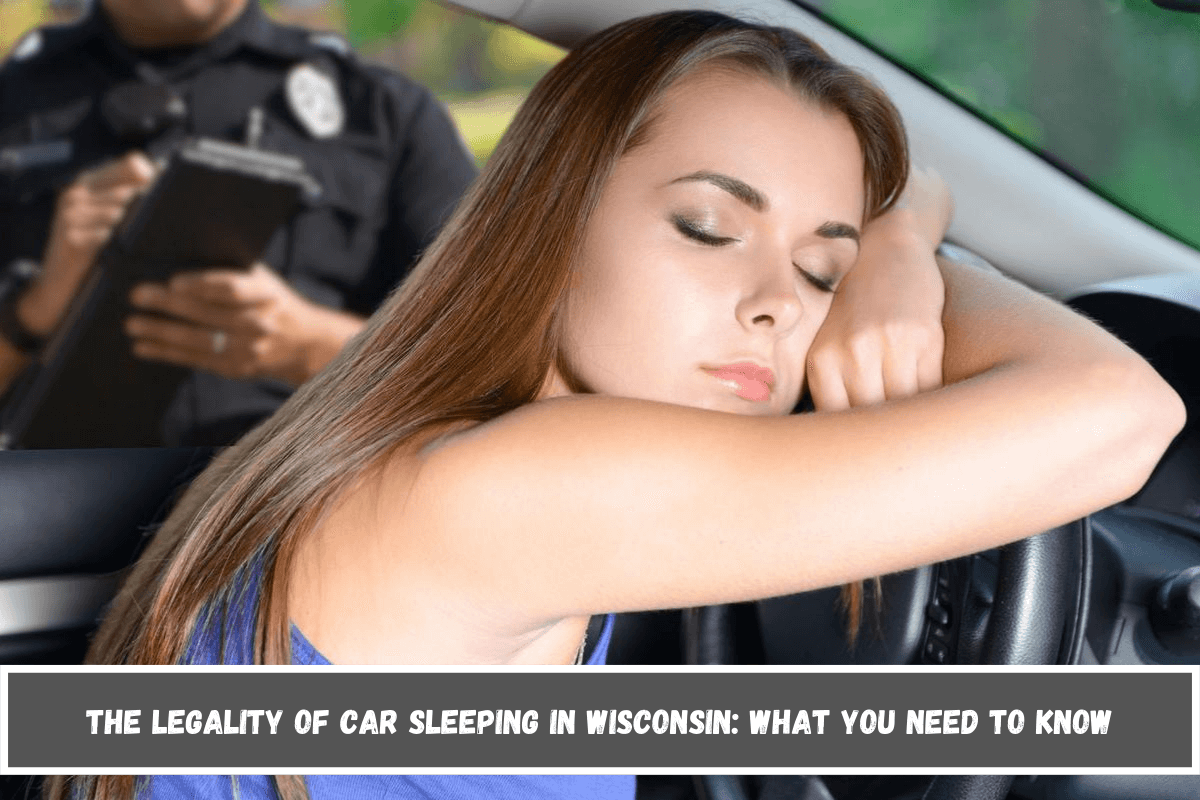Whether you’re traveling on a tight budget, dealing with an unanticipated housing situation, or simply need a quick nap after a long drive, sleeping in your car may seem like the best or only option. Before you do so in Wisconsin, you need understand the legal complexity to avoid fines, citations, and worse.
General Laws and Regulations in Wisconsin
Wisconsin law doesn’t explicitly prohibit sleeping in your car. However, there are key statutes and rules that indirectly impact the legality of car sleeping:
- Operating While Intoxicated (OWI): Wisconsin has a severe policy against OWI. Turning on your vehicle’s engine for any reason, including to operate the heat or air conditioning, while inebriated may be considered “operating” the vehicle, resulting in an OWI arrest.
- Public Parking and Rest Areas: Most Wisconsin rest areas and highways forbid overnight stays. Some cities and towns have rules that limit parking duration in public lots, on roadways, and in residential zones.
- Private Property: Sleeping in your car on private property (such as retail parking lots) is typically considered trespassing unless you have the owner’s express permission.
City-Specific Ordinances
Parking regulations and ordinances concerning sleeping in vehicles can significantly differ between Wisconsin cities. Here are a few examples:
- Madison: Madison’s rules usually prohibit camping or overnight parking in parks and on public streets.
- Milwaukee: Milwaukee’s ordinances prohibit sleeping in vehicles parked on public streets.
- Green Bay: Green Bay has particular rules governing overnight parking and camping within the city borders.
It’s always advisable to research the city ordinances of the specific location where you intend to sleep in your car. Local government websites are good starting points.
When Sleeping in Your Car Might Be Considered Illegal
Aside from potential OWI charges, here are instances when sleeping in your car could get you in trouble:
- Public Disturbance: If you cause a disturbance, such as playing loud music or revving the engine excessively, you may be charged with disorderly conduct.
- Trespassing: Parking on private land without permission, or breaching posted parking regulations, can result in trespassing penalties.
Safe and Legal Places to Sleep in Your Car
Fortunately, there are legal and safer options for sleeping in your car in Wisconsin:
- Rest Areas and Waysides: While most rest spots do not allow overnight stays, they are safe places to take brief naps during the day.
- Campgrounds and RV Parks: These offer designated parking spots and amenities for a nominal fee.
- 24-Hour Businesses: Some businesses like Walmart may allow overnight parking with permission from management. Always ask first!
- Dispersed Camping Areas: National forests and Bureau of Land Management (BLM) lands often allow dispersed camping for free or with a permit.
Tips for Staying Safe and Avoiding Trouble
If you find yourself needing to sleep in your car, follow these tips:
- Choose Your Location Wisely: Opt for well-lit and visibly populated areas whenever possible. Avoid isolated or poorly lit spots.
- Secure Your Valuables: Keep valuables hidden from sight to reduce the temptation for theft.
- Let Someone Know: Inform a friend or family member about your location and when you expect to be back in contact.
- Be Respectful: If staying overnight in a business parking lot, be courteous. Leave the area clean and don’t create noise that could disturb others.
- Minimal Engine Use: Avoid running your engine for extended periods to prevent excessive noise, potential carbon monoxide buildup, and legal issues. Dress warmly and use blankets in cold weather.
Additional Considerations
- Extreme Weather: In extreme weather, parking rules may be temporarily waived to provide relief to stranded or exhausted vehicles. Always check weather forecasts and local news for updates.
- Homelessness Resources: If you are homeless, sleeping in your car may be a temporary solution, but it is critical to seek long-term help. Many Wisconsin counties provide resources and agencies committed to helping people find homes and other support services.
Conclusion
Understanding the issues around the legality of sleeping in your car in Wisconsin is critical for avoiding potential problems. While not unlawful, it is critical to conduct research, exercise caution, and adhere to local restrictions. Prioritize safety, remain aware of your surroundings, and consider alternate solutions wherever possible. Remember, if you’re having housing issues, look into community options for long-term aid.











Leave a Reply